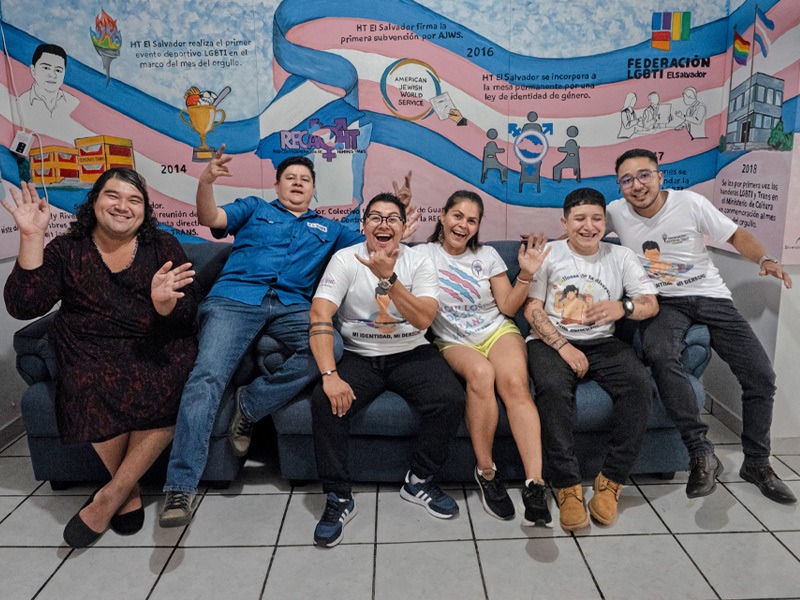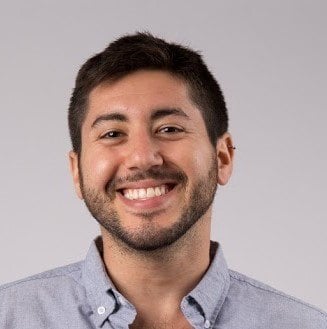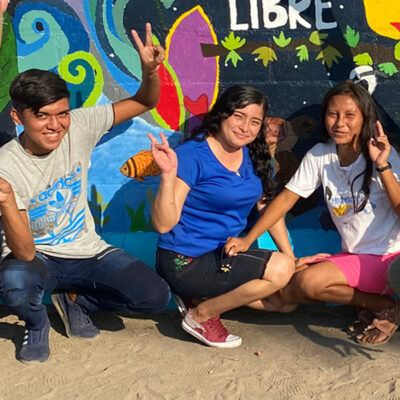
At 51-years-old, Villy Rivera speaks with cautious optimism about his ongoing fight for the rights of transgender men in El Salvador. Until only recently, he says, this community was nearly invisible — to the government, to society, and even to other LGBTQI+ people. But in the decade since Villy founded Generación HT El Salvador (the country’s only established organization supporting transgender men, and an AJWS grantee), this community has made incredible strides.
“We have always existed and we will always exist. And that’s really where we started our fight — simply to become visible,” says Villy.
Today, El Salvador remains an extremely dangerous country for LGBTQI+ people. Among this community, transgender men are especially targeted — as their gender expression feels, for many Salvadorans, at odds with traditional notions of masculinity. Trans men are regularly abandoned by their families, and they experience discrimination when trying to access healthcare, employment and social services. Laws meant to protect trans people — including a proposed bill giving trans people the right to change their names — have been shelved by the ruling party in Salvadoran parliament indefinitely.
Villy grew up understanding he was different, but he didn’t have any role models to help him understand how. Amid all the dangers that face trans men, there was no established organization to build a sense of solidarity, community and self-worth among them.
“No one guided me; I had to find my own pathway and adapt. I lived like a chameleon for half of my life. But no more,” says Villy. “I created HT because it’s never too late to find out who you are, and act on it.”
Today, HT El Salvador is building a supportive, thriving community for Salvadoran trans men. The organization provides critical support for trans men in crisis, including housing and access to hot meals. Established with AJWS’s support, HT’s office and community center is truly a safe space — and includes areas for socializing, cooking, meeting with social workers and therapists, and exercising. HT’s new Trans Power Gym is the only gym of its kind in El Salvador — a place where trans men can feel comfortable in their bodies, free from the ostracization and ridicule they experience when working out in public gyms.
Simultaneously, this collective has made strides in defending the rights of trans men — from building alliances with local hospitals to provide trans-appropriate healthcare, to training public school staff how to support trans students. HT also collaborates with LGBTQI+ organizations and others across Latin America, growing a regional movement sharing their challenges and standing up for their rights.
“We’re creating a movement of feminists, people with disabilities, LGBTQI+ people – a coalition of vulnerable communities to support each other’s struggles. We’re working together with our bodies, our words, our energy. These causes are ours even when they’re not,” says Villy. “We are looking for commonality, because oppression of one group is the oppression of all of us.”

Still, the community has far to go.
“Trans men live a life of survival here,” he says. “So, our first challenge is just living daily life. To wake up and to finish the day is a success. When people join HT, I tell them: This is not an office. This is not just work. This is your home – this is your family.”
Below, meet two members of the HT El Salvador family — at very different points in their journey of self-love, acceptance and visibility.




